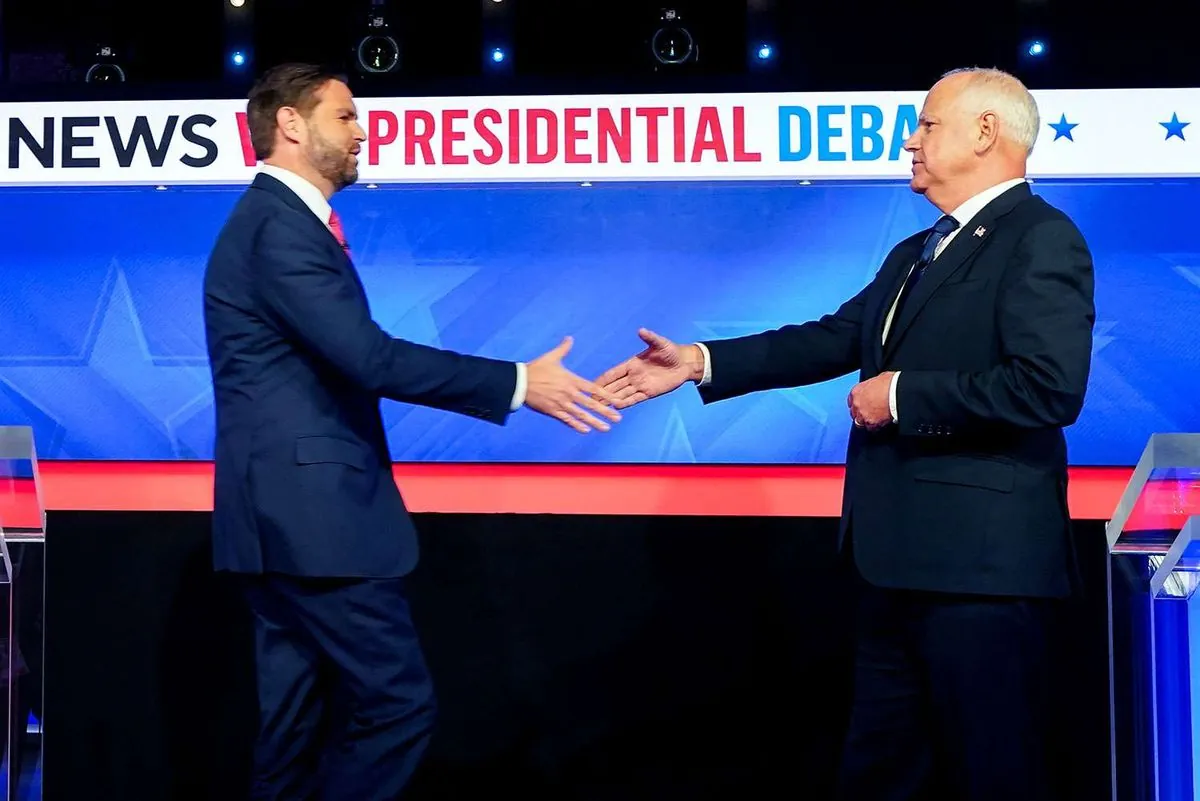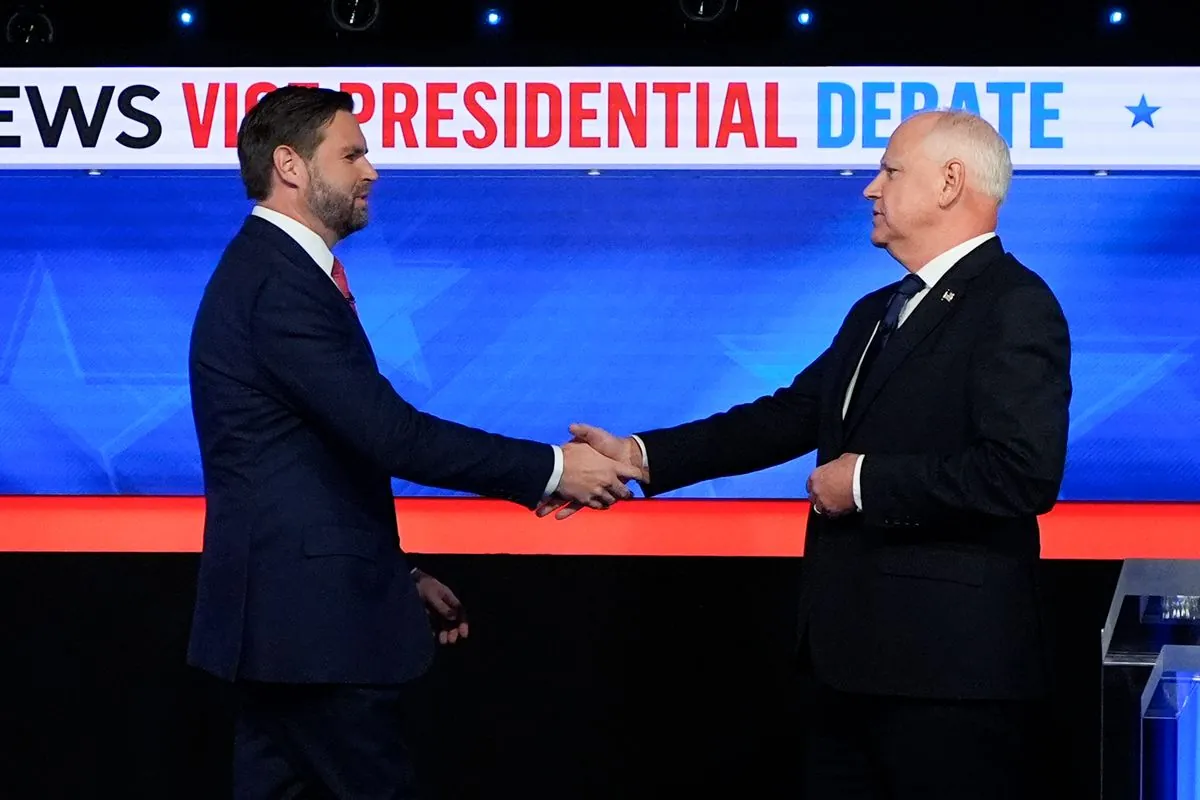Vance and Walz Clash Politely in Sole Vice-Presidential Debate
In a civil exchange, JD Vance and Tim Walz debated key issues while showing mutual respect. The debate highlighted policy differences between the campaigns without resorting to personal attacks.

In a display of "Midwest nice," JD Vance and Tim Walz engaged in a cordial yet substantive vice-presidential debate on October 1, 2024. The event, held in New York, marked a stark contrast to the contentious presidential debate between Donald Trump and Kamala Harris the previous month.
Vance, the 40-year-old Republican senator from Ohio and bestselling author of "Hillbilly Elegy," faced off against Walz, the 60-year-old Democratic governor of Minnesota and former teacher. Both candidates brought their military backgrounds to the table, with Vance having served in the U.S. Marine Corps and Walz boasting a 24-year career in the Army National Guard.
The debate covered a wide range of topics, including immigration, abortion, and foreign policy. While the candidates didn't shy away from criticizing their opponents' policies, they maintained a respectful tone throughout the evening.
On immigration, Vance accused the Harris administration of enabling drug cartels, while Walz countered by suggesting that Trump had impeded bipartisan solutions. The exchange highlighted the ongoing challenges in addressing this complex issue.

The abortion debate saw Walz emphasizing personal stories and the importance of reproductive rights, while Vance advocated for state-level decision-making on the issue. This discussion reflected the ongoing national conversation since the 2022 Supreme Court decision overturning Roe v Wade.
One of the more tense moments came when Walz pressed Vance on whether Trump had lost the 2020 election. Vance's non-committal response drew criticism from his opponent.
"That is damning. That is a damning non-answer."
Despite their differences, both candidates showed moments of empathy and agreement. They acknowledged past misstatements and expressed sympathy for personal experiences shared during the debate.
The civility displayed in this vice-presidential debate stands in contrast to the often-contentious nature of modern political discourse. While these debates typically have lower viewership than their presidential counterparts, they serve as important platforms for candidates to defend their running mates' policies and appeal to specific voter demographics.
As the only scheduled vice-presidential debate of the election cycle, this event provided voters with a unique opportunity to assess the potential future leaders. The candidates' performance and demeanor will likely be scrutinized in the coming days, as political analysts and voters alike consider the impact on the broader campaign.
With the election drawing near, both campaigns will undoubtedly use the debate outcomes to refine their messaging and strategy in key battleground states. As history has shown, the true impact of vice-presidential debates on election outcomes remains a subject of debate among political scientists.


































